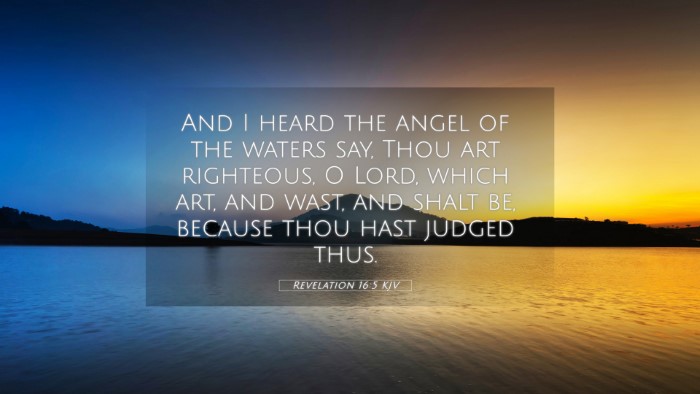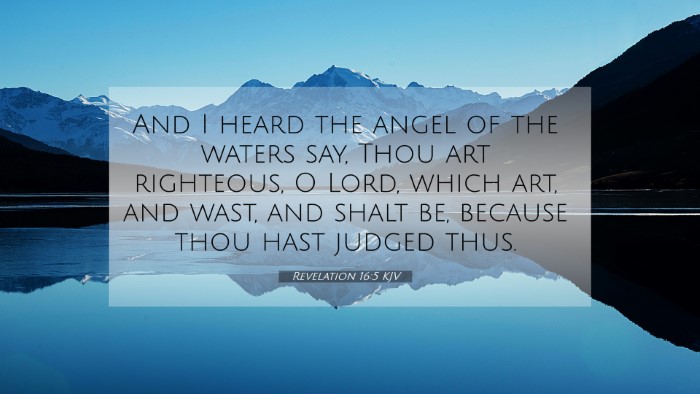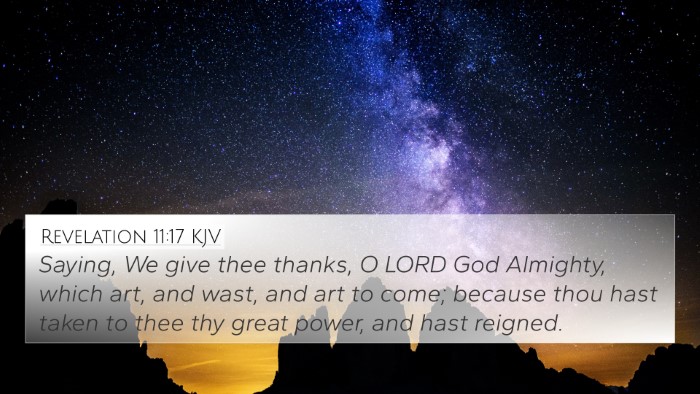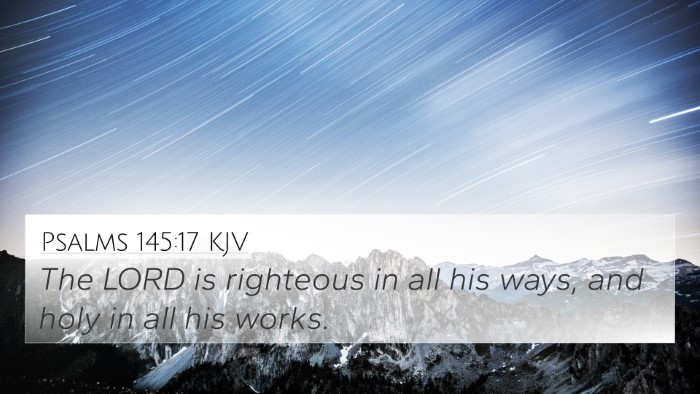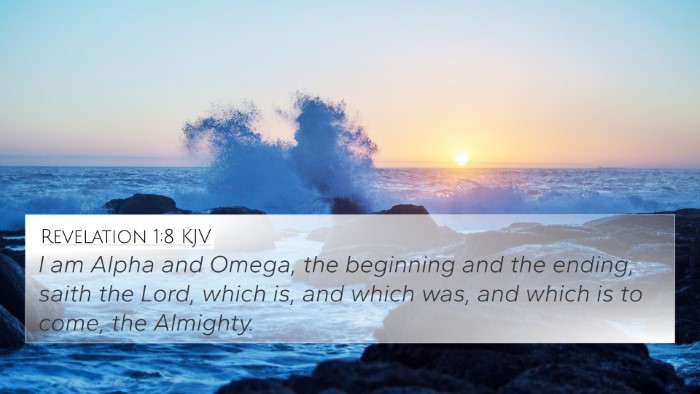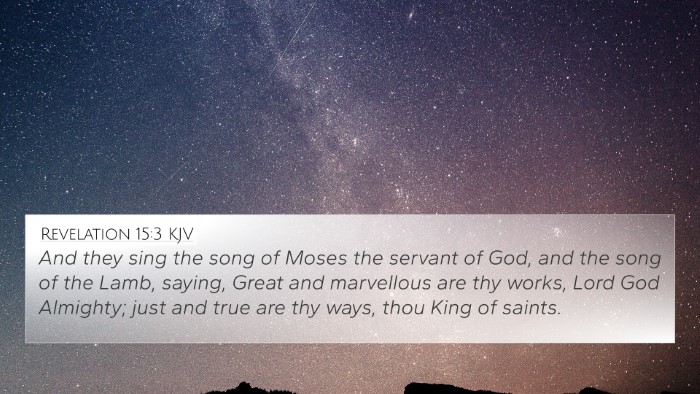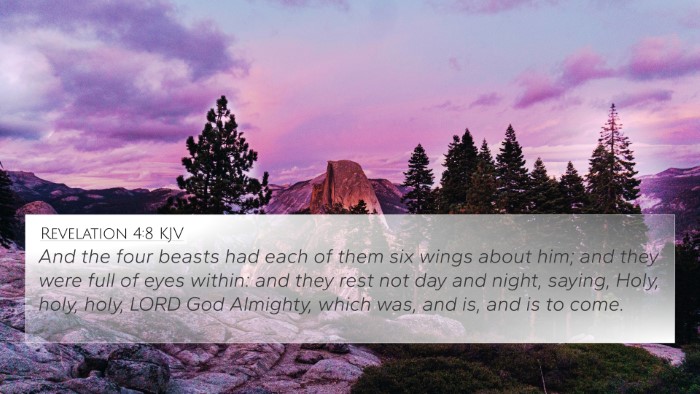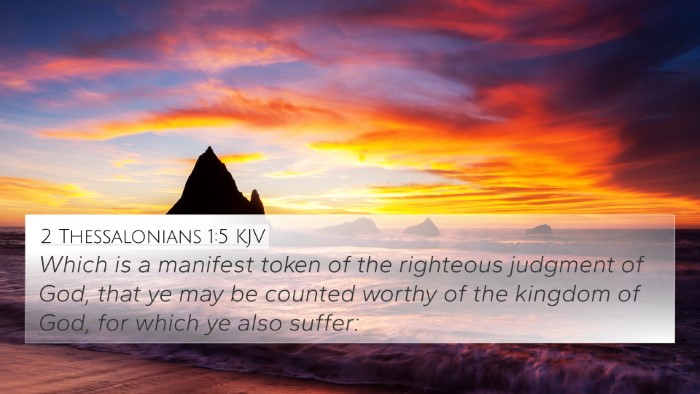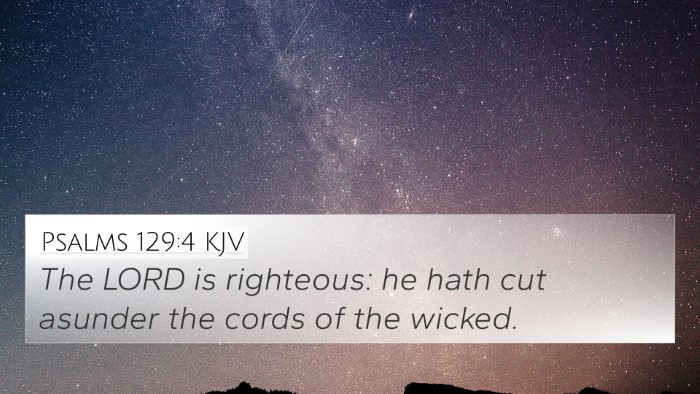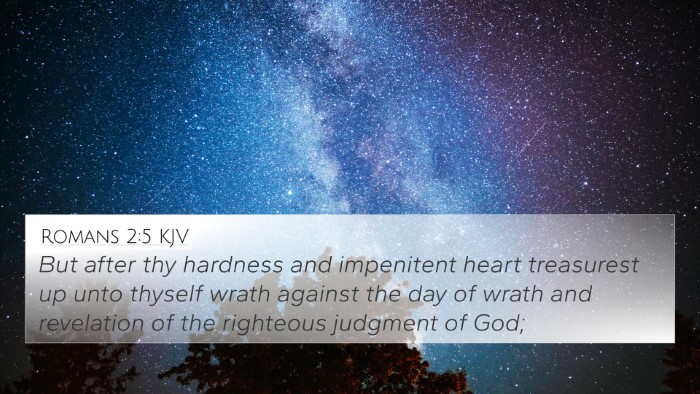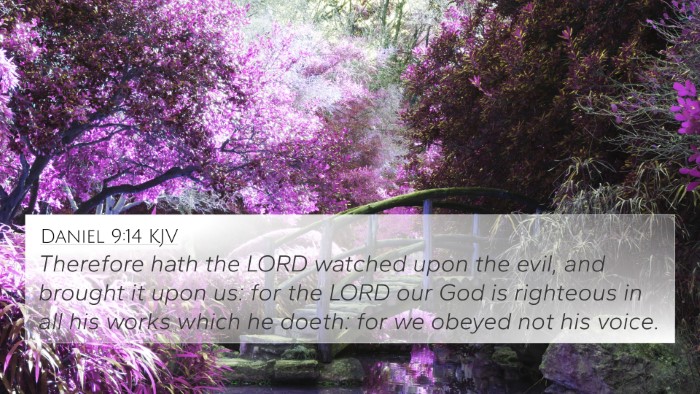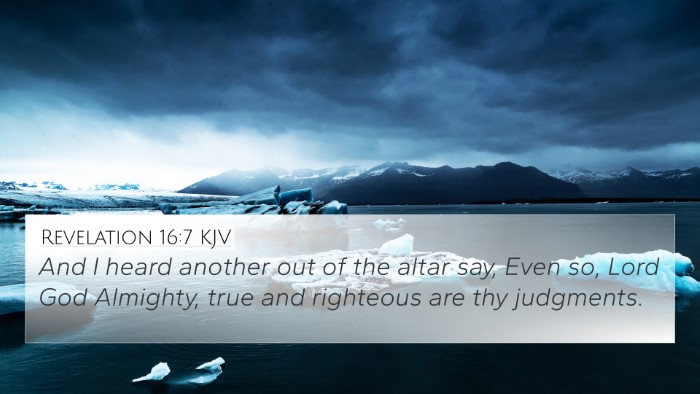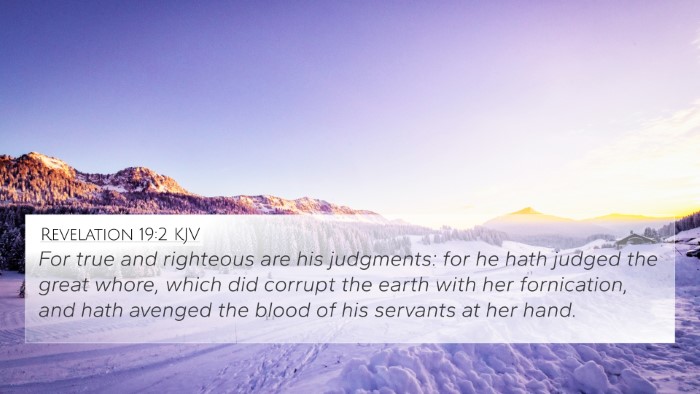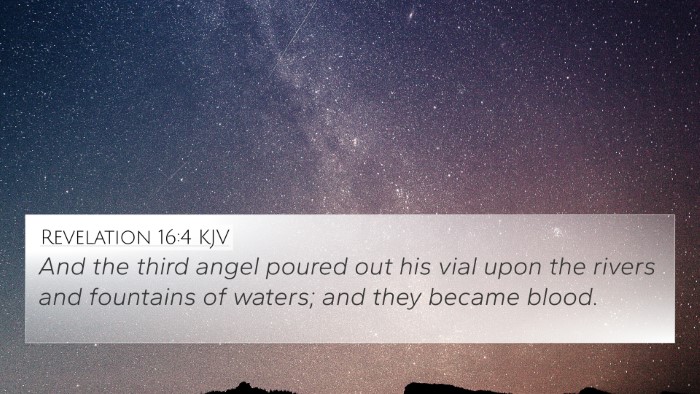Understanding Revelation 16:5
Verse: "And I heard the angel of the waters say, Thou art righteous, O Lord, which art, and wast, and shalt be, because thou hast judged thus." (Revelation 16:5)
Overview of Revelation 16:5
This verse is situated within the broader context of the plagues that are unleashed in Revelation. Here, the focus is on God's righteousness as displayed through divine judgment. The angel addressing God acknowledges His eternal nature and just actions.
Main Themes and Meanings
- Divine Judgment: The verse emphasizes the theme of God's judgments being righteous. According to Matthew Henry, this affirms that God’s decisions are based on His inherent justice.
- The Eternal Nature of God: The phrase "which art, and wast, and shalt be" highlights God's timeless existence. Albert Barnes notes that this is a declaration of God's sovereignty over time.
- God's Authority Over Creation: The angel of the waters serves as a messenger of God's authority. Adam Clarke remarks on the significance of the angelic declaration as an affirmation of God’s control over natural elements.
- Praise for God’s Righteousness: The angel’s proclamation is also a form of worship, recognizing God's purity and moral perfection in executing judgment.
Cross References
To deepen the understanding of Revelation 16:5, here are some relevant cross-references:
- Isaiah 30:18: "Therefore will the Lord wait, that he may be gracious unto you..." — highlights God’s desire to be just while offering grace.
- Psalms 9:8: "And he shall judge the world in righteousness, he shall minister judgment to the people in uprightness." — correlates with the theme of divine justice.
- Romans 2:6: "Who will render to every man according to his deeds." — reinforces the idea of righteous judgment.
- 2 Thessalonians 1:6: "Seeing it is a righteous thing with God to recompense tribulation to them that trouble you." — underscores God's justice in dealing with humanity.
- Revelation 15:3: "And they sing the song of Moses the servant of God..." — demonstrates the continuous theme of divine praise linked to judgment.
- Hebrews 10:30: "For we know him that hath said, Vengeance belongeth unto me, I will recompense, saith the Lord." — connects the judgment aspect of God’s character.
- Malachi 3:6: "For I am the Lord, I change not; therefore ye sons of Jacob are not consumed." — speaks to God's unchanging nature and consistent justice.
Connections Between Bible Verses
Revelation 16:5 can be linked to several other scriptures that explore similar themes of divine justice and God's eternal nature. Understanding these connections enriches the comprehension of how God's righteousness is portrayed throughout the Bible.
Linking Scripture Examples:
- Jeremiah 12:1: Addresses God's justice and the perplexity of the righteous witnessing evil prospering.
- 1 Peter 4:17: Discusses judgment beginning at the house of God, noting God's discerning nature in judgment.
- Acts 17:31: "Because he hath appointed a day, in the which he will judge the world in righteousness..." — reiterates the assured coming of just judgment.
Comparative Bible Verse Analysis
When analyzing Revelation 16:5, it is insightful to compare it with Old Testament prophecies that establish the righteousness of God. Such comparisons can highlight the theological continuity from the Old Covenant to the New Covenant, illustrating how God’s character remains constant throughout Scripture.
Tools for Bible Cross-Referencing
To enhance your study of cross-referenced Bible verses, consider using:
- Bible Concordance: A helpful tool listing words in the Bible and their locations for easy reference.
- Bible Cross-Reference Guide: A resource that illustrates thematic connections and helps find related verses.
- Bible Reference Resources: Various tools and guides that aid in exhaustive scripture study, focusing on inter-Biblical dialogue.
Conclusion
Revelation 16:5 encapsulates profound truths about God’s righteousness and His eternal nature. Understanding this verse alongside others not only sheds light on the prophetic judgments described in Revelation but also allows for a more cohesive understanding of Biblical themes. Engaging with these texts through cross-referencing and comparative study methods offers deeper insight into God's character and His dealings with humanity throughout Scripture.
Further Study Recommendations
For those interested in conducting a more thorough study, below are some recommendations:
- Explore a detailed cross-reference between Gospels and Revelation.
- Identify connections between Old Testament prophets and the Apostolic teachings in the New Testament.
- Conduct comparative studies focusing on Pauline epistles and their themes of righteousness and judgment.
By employing these analytical methods, readers can uncover layered meanings and connections inherent within biblical texts, enriching their spiritual growth and understanding.

